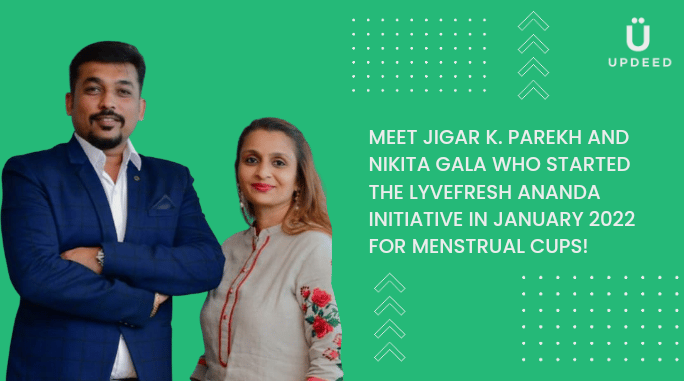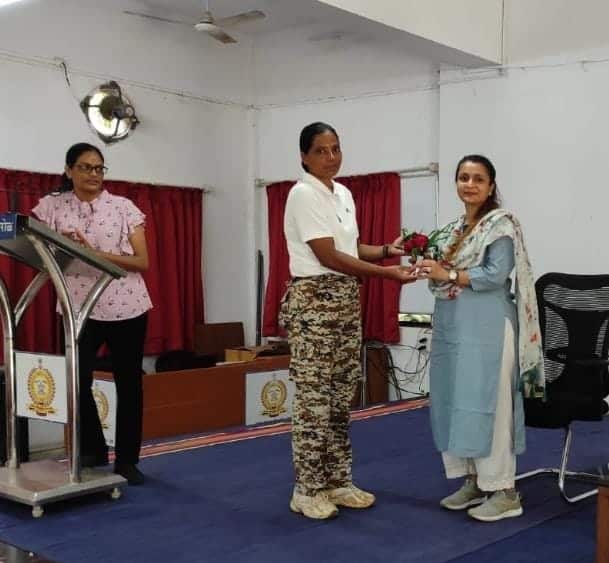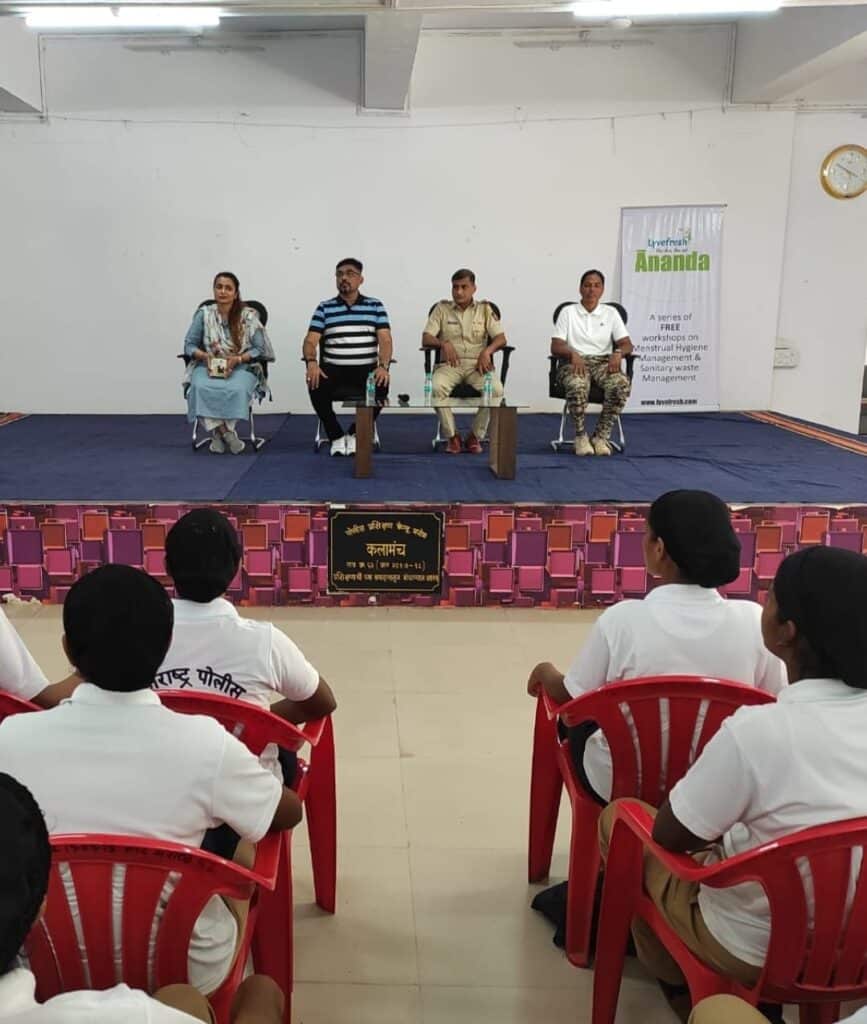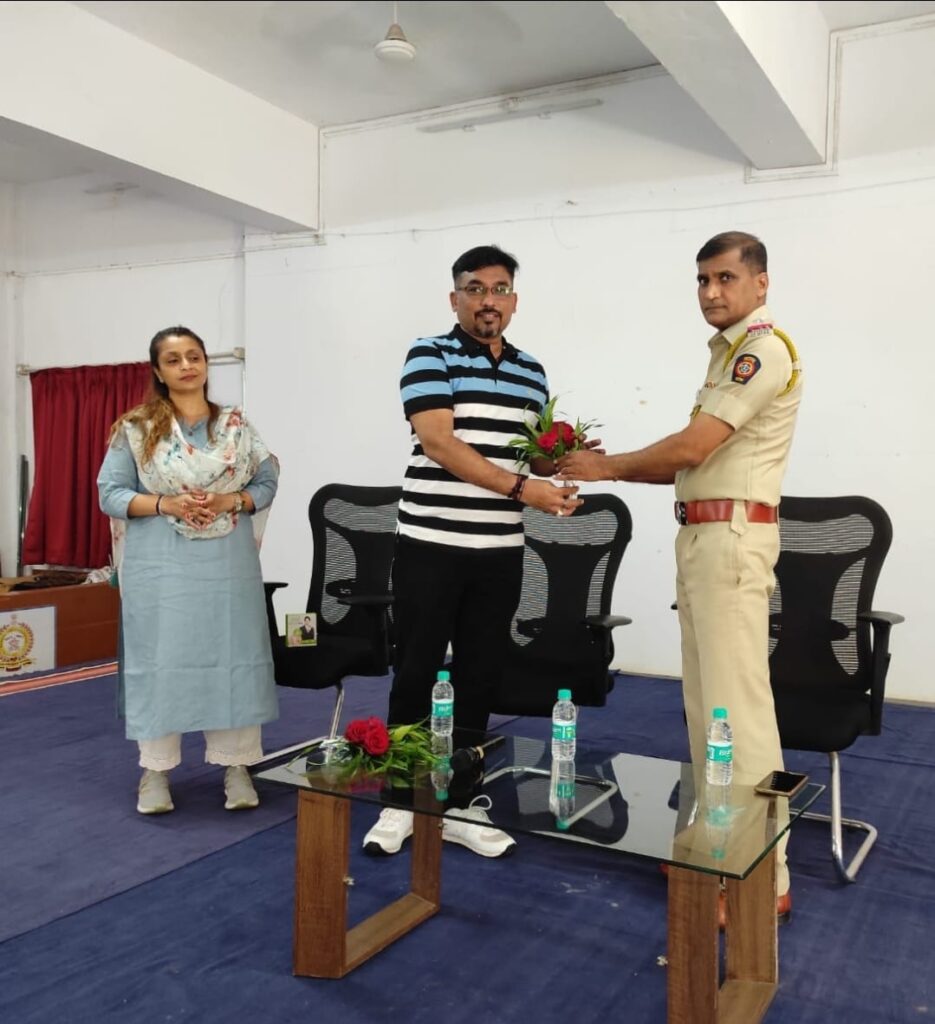Menstrual cups are a big ‘Yes’ for Periods, here’s why!

“Females find sanitary pads messy.” The plastic leakage can cause serious health issues; they are uncomfortable walking in the rain – it’s like going on and on with the problems. “A single sanitary pad takes 800 years to decompose.”
“The eco-friendly silicon-based menstrual cup was invented in 1939 in the USA. The product’s acceptance is quite good in western countries; unfortunately, the scenario is reversed in India.”
Menstrual cups are a good alternative, cost-effective, environment-friendly, and are much more comfortable than the pads currently available in the market, but are yet to find accepted within society.
To understand the scenario behind the same, team UPDEED talked to Jigar K. Parekh, Co-founder & CEO at Lyvefresh. He and Nikita Gala started the Lyvefresh ANANDA initiative in January 2022 to “promote menstrual hygiene practices” and “provide free” workshops with standardized training content and a system-driven approach.
The origin
LyveFresh has multiple products, and silicon-based menstrual cups were also manufactured in the factory. Last December, in 2021, the team was marketing a lot of products in the e-commerce space, as well as offline space.
“We were doing some research in India. Many brands across the eCommerce platform are trying to sell the product, but we found that there is no awareness, and there is no sale happening. Simple reason – there is no awareness; hence there is no acceptance of the product. The product actually needs the right push,” said Parekh.
The team started “LyveFresh ANANDA” as a social initiative and described the initiative as menstrual hygiene free workshops on menstrual hygiene management and sanitary waste management. Following that, the team approached the Commissioner of Police Bombay and tried to pitch them that “we would like to do these free workshops” for the women Bombay police officers. There are more than 50,000 women officers, but to start with, the team received the first batch of 2200 women officers from the Bombay police.
“We also provide the product being a manufacturer at a very subsidised rate to the right people. Also, we have not made it a compulsion for the people because it is a social initiative, and we are not looking at this cause from a commercial angle,” said Jigar.
What are we lacking as a society?
A lot of females who used to attend the workshop, and even some of the senior people from the industry, Jigar used to ask one question – When and how did this product, called a silicon menstrual cup, which is the eco-friendly alternative to the pad, who invented it and when? He hardly got any answer in many of these workshops.
It was been invented in 1939 in the USA. The product has been here for decades. However, the acceptance of this product in the Western countries or countries outside India – there is a huge acceptance of these products.
“There are also a few countries who have already banned sanitary pads, researches that the sanitary pad contains a certain proportion of plastic and is harming health majorly to the females. Over a period of time, it can also cause cancer in females,” Jigar said.
He further said, “It’s not about the lack of choice but the lack of awareness about menstrual cups. You can educate them, but it’s difficult to make them adopt since, at end of the day – it’s an individual choice.”
“Nearly 1,13,000 metric tons of non-recyclable sanitary waste is generated every year in India, and that’s huge.” “India, if it works in a systematic way, can become a pad-free country by 2030,” he added.
In Kerala, a rural village called Kumbalangi in Ernakulam has become the first rural village in Kerala to be 100% pad-free. Similarly, some of the reports indicate that India is doing pretty well. If everything goes according to plan, then it can become a pad-free country by 2030.



The lack of awareness is a problem. But again, one can educate and raise awareness about the issue. However, it is still difficult to make people adopt it because it’s an individual choice at the end of the day.
People can misjudge
Being a bussinessman, sometimes people might have doubts about Jigar’s intentions. Many a time, they might be of the view that all he is doing is merely a business. However, Jigar has a different opinion altogether.
“When people try to portray my efforts towards menstrual health as something related to my business – I don’t get offended, rather I speak to them and make them understand,” said Jigar.
“Since ages, in a family, say rural or urban, both male and female come together to discuss things related to family – whether it’s about family planning, spending, daily household problems – then why not menstrual hygiene. “It’s high time for both the male and the female to talk and discuss,” he added.
What next
The team is planning to do offline fundraising. They are creating a small sticker with a QR code and some graphics on it. The plan is to stick this sticker at all the cigarette shops across Bombay as a pilot project and behind every autorickshaw (on the back of the driver). Hence, while smoking cigarettes or sitting idle inside the auto, people can donate whatever they wish, even if it’s Rs 5, Rs 10, Rs 50, or Rs 100.
Further, the team is collaborating with Kineer Services to involve the third gender in this fundraising movement, and they will also get some revenue as a source of income. Thus serving two positives at a time – promoting the novel cause of menstrual hygiene and empowering the third gender.
About UPDEED: UPDEED is networking platform that connects changemakers around the world to amplify their impact on individuals and the society!





